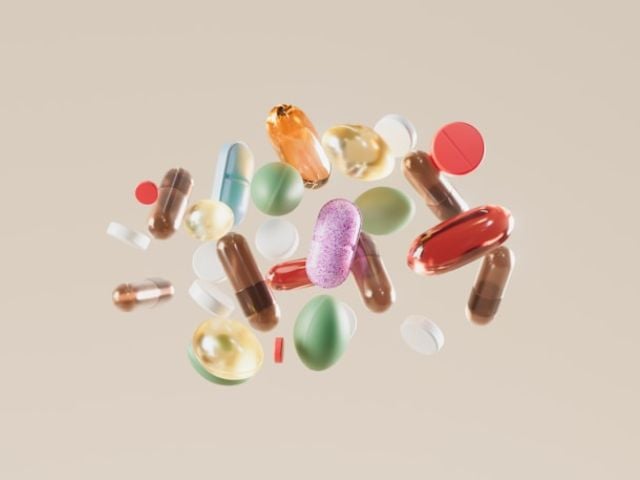
Is NAD+ Worth It? Here’s What a Genomic Medicine Expert Says
The wellness world seems obsessed with NAD these days. Social media influencers tout it as the fountain of youth. Biohackers swear by its energy-boosting effects. Even celebrities credit NAD treatments for their youthful appearance.
But are NAD-boosting supplements really worth all this attention? As someone who has spent decades in genomic medicine research, Dr. Jin-Xiong She wanted to separate fact from fiction. The answer is more nuanced than most people realize.
Key Takeaways
- NAD supplementation has solid scientific support for multiple health benefits
- Individual testing provides the foundation for safe, effective use
- Realistic expectations lead to better outcomes than hype-driven approaches
What is NAD and Why Does It Matter as We Age?
Nicotinamide adenine dinucleotide (NAD) is a coenzyme found in every cell of your body. Think of it as cellular fuel that powers over 500 different biochemical reactions.
“NAD is absolutely important to cellular function,” explains Dr. Jin-Xiong She, founder of Jinfiniti Precision Medicine and genomic medicine researcher with over 400 peer-reviewed papers. “Without adequate NAD levels, your cells can’t make energy properly, fix DNA damage, or keep up with all the repair work they need to do.”
The problem starts around middle age. Research shows NAD levels decline by up to 50% by age 501. This decline contributes to mitochondrial dysfunction, impaired DNA repair, and reduced cellular energy production.
The NADH Connection
NADH is the reduced form of NAD. While both molecules play important roles, they serve different cellular functions. NAD acts as an electron acceptor in metabolic reactions, while NADH carries electrons to the mitochondria for energy production.
Your body maintains a delicate balance between these two forms. When this balance shifts, cellular metabolism suffers.
The Science Behind NAD Supplements Actually Working
The research supporting NAD supplementation is genuinely impressive. A systematic review of six major clinical studies involving over 400 participants found consistent increases in blood NAD concentrations ranging from 10% to 150%2.
These weren’t small, poorly designed trials. Most studies used dosages between 250-900 mg daily over 8-12 week periods with proper placebo controls.
“What’s most encouraging is the consistency across different study populations,” notes Dr. She. “We’re seeing reproducible results in healthy adults and also those with age-related health concerns.”
Clinical Trial Results
| Study Type | Participants | NAD Increase | Duration | Safety Profile |
|---|---|---|---|---|
| NMN Studies | 200+ | 10-150% | 8-12 weeks | Excellent |
| NR Studies | 200+ | 25-140% | 4-52 weeks | Excellent |
| Combined Analysis | 400+ | Significant | Variable | Minimal side effects |
How NAD Supplement Benefits Compare to the Hype
The most compelling evidence comes from physical performance studies3. NMN supplementation significantly improved aerobic capacity in amateur runners, with measurable increases in VO2 max and oxygen utilization efficiency.
But here’s where we need to be realistic about expectations.
“People expect immediate, dramatic changes,” observes Dr. She. “The reality is that NAD supplementation works at the cellular level. Benefits accumulate gradually over weeks and months, not days.”
What Research Actually Shows
Physical Performance:
- Improved exercise capacity and muscle oxygen utilization
- Enhanced grip strength and walking speed in older adults
- Better recovery times in trained athletes
Metabolic Health:
- Improved insulin sensitivity and glucose tolerance4
- Reduced cholesterol and triglyceride levels
- Enhanced mitochondrial health and cellular repair
Cognitive Function:
- Faster brain penetration5 (NMN crosses blood-brain barrier in 15 minutes)
- Improved spatial memory in animal studies
- Preliminary human studies suggest better mental clarity
Do NAD Supplements Work for Longevity?
The longevity question is where the science becomes both exciting and complicated. The most significant breakthrough came from a recent 2025 clinical trial treating Werner syndrome6, a rare genetic disorder causing premature aging.
Patients receiving 500mg daily nicotinamide riboside (NR) for 52 weeks showed remarkable improvements. NAD levels increased by 140%, skin ulcers healed, arterial stiffness decreased, and kidney function markers improved.
“This trial really excited me because it shows NAD actually reversing aging damage in real people,” says Dr. She. “We’ve all been working toward this for years, but these researchers were the first to get clear proof that fixing NAD deficiency can actually turn back the clock on aging.”
Benefits of NAD: What Research Shows
The mechanisms behind these benefits involve several interconnected pathways:
- Sirtuin Activation: NAD serves as fuel for sirtuins, enzymes that regulate metabolism and longevity signaling7
- DNA Repair Enhancement: Adequate NAD levels support PARP enzymes responsible for fixing DNA damage8
- Mitochondrial Biogenesis: NAD helps create new, healthy mitochondria9
- Cellular Senescence Regulation: NAD may help clear dysfunctional “zombie” cells10
Should You Take NAD? A Genomic Medicine Perspective
This is where individual testing becomes essential. NAD metabolism varies significantly between people due to genetic differences, age, lifestyle, and health status.
“I’ve seen two people of the same age have dramatically different baseline NAD levels,” notes Dr. She. “Without testing, you’re really just guessing at the right approach.”
NAD Precursors vs Direct Supplementation
Most supplements contain NAD precursors rather than NAD itself:
Nicotinamide Mononucleotide (NMN):
- Direct precursor to NAD
- Excellent safety profile up to 1250mg daily11
- Rapid absorption and conversion
Nicotinamide Riboside (NR):
- Alternative precursor pathway
- Shown to be safe up to 2000mg daily12
- Longer clinical trial history
NAD injections are another option, though the research supporting oral supplementation is more extensive for long-term use.
Who Should Consider NAD Supplementation?
The research suggests these groups may benefit most:
- Adults over 40 experiencing age-related energy decline
- Athletes seeking improved performance and recovery
- Individuals with metabolic health concerns
- Those interested in science-based anti-aging approaches
However, Dr. She emphasizes caution: “Supplementation should always be based on the actual need, not assumptions. Testing provides the roadmap for safe optimization.”
How to Boost NAD Safely and Effectively
Current evidence suggests optimal NAD dosing varies by individual goals:
General Health Support:
- NMN: 250-500mg daily
- NR: 250-500mg daily
Athletic Performance:
- NMN: 300-600mg daily
- NR: 300-500mg daily
Metabolic Health:
- NMN: 300-900mg daily
- NR: 500-1000mg daily
But these are general guidelines. Individual optimization requires knowing your starting point.
The Testing-First Approach
Jinfiniti’s Intracellular NAD Test measures actual cellular NAD levels through a simple finger-prick blood test. This provides the baseline data needed for personalized supplementation.
“The Test, Act, Optimize philosophy isn’t just our company motto,” explains Dr. She. “It’s the most scientifically correct approach to any intervention. You need data to make informed decisions about your health.”
Safety Considerations
The safety profile for NAD precursors is favorable across all published human studies. Side effects are typically mild and limited to occasional gastrointestinal discomfort11.
However, certain populations should exercise extra caution:
- Pregnant or breastfeeding women
- Individuals with active cancer (theoretical concerns about tumor cell NAD usage)
- Those taking multiple medications (potential interactions)
The Verdict: Cautious Optimism Based on Science
After reviewing hundreds of studies and working with thousands of patients, Dr. She’s perspective on NAD supplementation is cautiously optimistic.
The research foundation is solid. Clinical trials consistently demonstrate safety and efficacy13. The mechanisms make biological sense. The Werner syndrome breakthrough provides compelling proof-of-concept.
But NAD isn’t a magic pill. It’s one tool in a comprehensive approach to healthy aging that should include proper nutrition, exercise, stress management and sleep.
“NAD supplementation really works – the science is solid,” says Dr. She. “But like anything that actually works, you need to be smart about how you use it. One size definitely doesn’t fit all.”
The NAD hype has some substance but the real value is in the details. Testing your levels, choosing good supplements and having realistic expectations will help you use this tool safely and effectively.
If you want to try NAD optimization start with baseline NAD+ testing to know your individual needs. The science supports NAD but personal data makes all the difference in getting results.
Want to learn more about NAD and longevity? Check out our comprehensive guides on NAD+ fundamentals and how to test your NAD levels for additional insights.
Referenced Sources
- https://pmc.ncbi.nlm.nih.gov/articles/PMC4112140/ ↩︎
- https://nnpub.org/index.php/MHS/article/view/2075 ↩︎
- https://www.tandfonline.com/doi/full/10.1186/s12970-021-00442-4 ↩︎
- https://pmc.ncbi.nlm.nih.gov/articles/PMC10692436/ ↩︎
- https://pubmed.ncbi.nlm.nih.gov/31015147/ ↩︎
- https://www.sciencedaily.com/releases/2025/06/250609020625.htm ↩︎
- https://www.sciencedirect.com/science/article/pii/S0092867413007551 ↩︎
- https://www.molbiolcell.org/doi/10.1091/mbc.E18-10-0650 ↩︎
- https://www.science.org/doi/10.1126/science.aaf2693 ↩︎
- https://onlinelibrary.wiley.com/doi/10.1111/acel.13920 ↩︎
- https://www.mdpi.com/2076-3921/11/9/1637 ↩︎
- https://pmc.ncbi.nlm.nih.gov/articles/PMC9495723/ ↩︎
- https://www.liebertpub.com/doi/10.1089/ars.2023.0354 ↩︎











